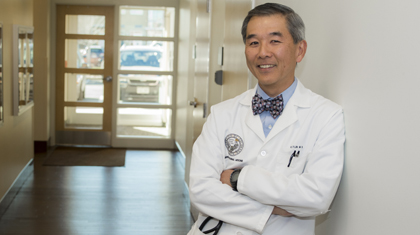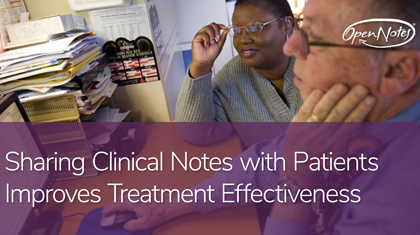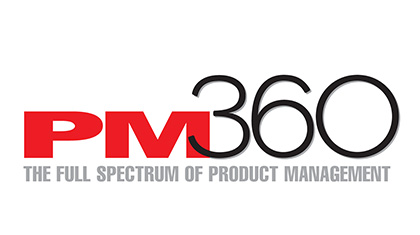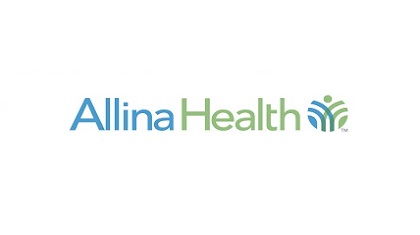By CT Lin, MD DENVER, CO – I am often asked, “What is the best way to participate in open notes and sharing physician progress notes with patients?” To answer this question, I created this one-page PDF guide. Feel free to use and share it—and please include attribution when you share. In Short: Don’t Panic!…
Doctor's notes
Sharing Clinical Notes With Patients Improves Treatment Effectiveness
by John Torous, MD – BOSTON, MA – Digital psychiatry – using new mobile and connected technologies towards mental health and wellness – offers tremendous potential.
What patients value about reading visit notes: a qualitative inquiry of patient experiences with their health information
Background: Patients are increasingly asking for their health data. Yet, little is known about what motivates patients to engage with the electronic health record (EHR). Furthermore, quality-focused mechanisms for patients to comment about their records are lacking.
Objective: We aimed to learn more about patient experiences with reading and providing feedback on their visit notes.
Methods: We developed a patient feedback tool linked to OpenNotes as part of a pilot quality improvement initiative focused on patient engagement. Patients who had appointments with members of 2 primary care teams piloting the program between August 2014-2015 were eligible to participate. We asked patients what they liked about reading notes and about using a feedback tool and analyzed all patient reports submitted during the pilot period. Two researchers coded the qualitative responses (κ=.74).
PM360: A note about OpenNotes
“He is a frequent flyer.” This is a term we reserve for patients who consume a lot of services. In the outpatient clinic, it’s the type of patient who comes for frequent visits perhaps more often than medically necessary. Oftentimes, more than we’d like.
Allina Health gives patients expanded access to their medical records
MINNEAPOLIS 05/04/2017 — To improve patient experience and care, Allina Health is the Twin Cities’ first health system to launch OpenNotes. After a visit to the doctor, when people are
Student-accessible healthcare records: A mixed-method study of college student and provider
This mixed methods study evaluated student and provider attitudes and expectations about offering students online access to their student health services visit notes (open notes). Six (N=6) health care providers from four public universities in northeastern Massachusetts participated. Qualitative interviews were completed by students (N=14) from one University in fall of 2013 and an online survey was completed at two universities in Spring of 2014. Attitudes and expectations were explored using qualitative data and descriptive statistics were used to analyze survey questions. Students’ interviews revealed that they desire control over their health and open notes would give them insight and involvement in their health care. Survey data supported these themes. In contrast, providers worried about how it could impact provider-patient relationships. Open notes has the potential to promote students’ understanding and responsibility for their healthcare, which could assist students in their transition from pediatric to adult health care.
Patients and families as teachers: a mixed method assessment of collaborative learning model for medical error disclosure and prevention
Despite growing interest in engaging patients and families (P/F) in patient safety education, little is known about how P/F can best contribute. We assessed the feasibility and acceptability of a patient–teacher medical error disclosure and prevention training model. We developed an educational intervention bringing together interprofessional clinicians with P/F from hospital advisory councils to discuss error disclosure and prevention. Patient focus groups and orientation sessions informed curriculum and assessment design. A pre-post survey with qualitative and quantitative questions was used to assess P/F and clinician experiences and attitudes about collaborative safety education including participant hopes, fears, perceived value of learning experience and challenges. Responses to open-ended questions were coded according to principles of content analysis.
Transparent Electronic Health Records and Lagging Laws
Millions of patients are accessing their medical records online via secure electronic patient portals. They are also increasingly uploading data directly into their records, and many clinicians now offer patients ready and ongoing access to the notes that document encounters. In response, patients report improved understanding of their care, better recall, enhanced adherence to care plans, and an increased sense of control over their health.
When doctors share visit notes with patients: a study of patient and doctor perceptions of documentation errors, safety opportunities and the patient–doctor relationship
Patient advocates and safety experts encourage adoption of transparent health records, but sceptics worry that shared notes may offend patients, erode trust or promote defensive medicine. As electronic health records disseminate, such disparate views fuel policy debates about risks and benefits of sharing visit notes with patients through portals.
Soliciting patient feedback on visit notes: An educational opportunity
Patient and family engagement is gaining attention as a priority in patient care1 and medical education.2 OpenNotes, an innovation that invites patients to read their visit notes through a secure online portal, has demonstrated several health benefits.3 Over five million U.S. patients have online access to their notes today; shared visit notes may not only engage patients in care but also open the door to new educational innovations.
Intrigued by the idea of patient/family feedback on visit notes, our research team asked residents and their supervisors whether such feedback would be helpful.4 In surveys and focus groups, many agreed it would be.







